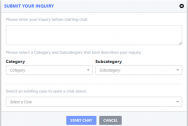Operating a Centralized HR Help Desk Across Multiple Geographies & Time Zones
Operating your centralized HR help desk, or any centralized HR system for that matter, in multiple geographical regions can be challenging at best, and at worst painfully difficult to manage. There are language constraints, SLA differences, general work-day availability issues, HR policy variances from region to region, and other issues unique to global organizations.
The easy answer might be to take a decentralized approach with multiple systems managed locally, though that solution presents an entirely different set of problems and complexities, such as multiple system integrations, added IT resources, complex reporting, higher costs, system management, etc. Obviously there is no easy answer.
There are very few truly global HR systems available, and those that exist can be cost prohibitive and difficult to maintain. Just because an organization is global in structure does not mean it is particularly large in size or replete with available IT resources, or enjoys the budget necessary to acquire such systems.
So what is the solution? Yes, there may be one. Before we suggest alternatives to the centralized and decentralized system approach, you need to carefully consider your current HR environment and determine what processes could change if necessary and those that cannot change.
For instance, is your HR organization decentralized, with HR resources available in each region, able to speak the native language of the region and have comprehensive training on local laws, policies, and practices? Are your regions so widely disbursed that time zone differences can negate the practicality of providing a centralized help desk staff? After all, what is the use of an online chat capability if you can’t feasibly staff it for live 24-hour access? The time difference between Australia and New York City is 10 hours! And even if you could manage the time zone issue, can the application automatically translate the employee’s written request from their language to the language of the HR support person who is online at the time?
One technical alternative is a hybrid centralized/decentralized system approach, known as a federated architecture. In layman’s terms, decentralized software (i.e., separate copies of the same help desk software application) is deployed to each region or business unit, each sharing or accessing common data from a parent source, such as accessing employee data in the corporate HR system. Additionally, since every deployment is the same exact application, aggregating the databases for enterprise reporting and analytics is greatly simplified. In fact, it is even possible for each instance to use the same database. Language translation (when necessary) for reporting can occur at the aggregated database level. And technical support is also simplified because only one business application is deployed, albeit in separate instances.
This approach does not handle the issue of centralized environments where (for instance) a worker in Italy must contact HR in the UK. This presents a problem if the case is created in Italian but is assigned to an English-only speaking agent. The most modern HR help desk solutions, such as LBi HR HelpDesk, can utilize web services like Google Translate to translate foreign language text on the fly.
Neither of these options may be perfect solutions for many global operations, but there is still a potential answer. The ultimate benefit of any HR Help Desk solution is to reduce unnecessary calls into HR, and this is achieved through comprehensive employee self-service. FAQ knowledge bases and searchable HR documentation (i.e., benefit guides, employee handbooks, forms, etc.) can provide fast and accurate answers to most employee questions. These Knowledge Bases can be region specific, providing only relevant information, available in the native language of the employee. The best document management/authoring systems also have multi-language capability, and provide the security and workflow features large enterprises need to manage Knowledge Base material in disparate regions and languages.
With a comprehensive knowledge base in place, organizations can realize as much as a 75% reduction in calls to HR, compared to operations where no ticket management system is in place. While a robust self-service utility doesn’t solve every global system management issue, it takes some strain out of HR by freeing up valuable time for more critical work.
Though there is no simple solution for HR managing a global workforce, careful thought and planning (and working with an experienced solution provider like LBi) will ensure the best possible system match for your organization. Try it today.






